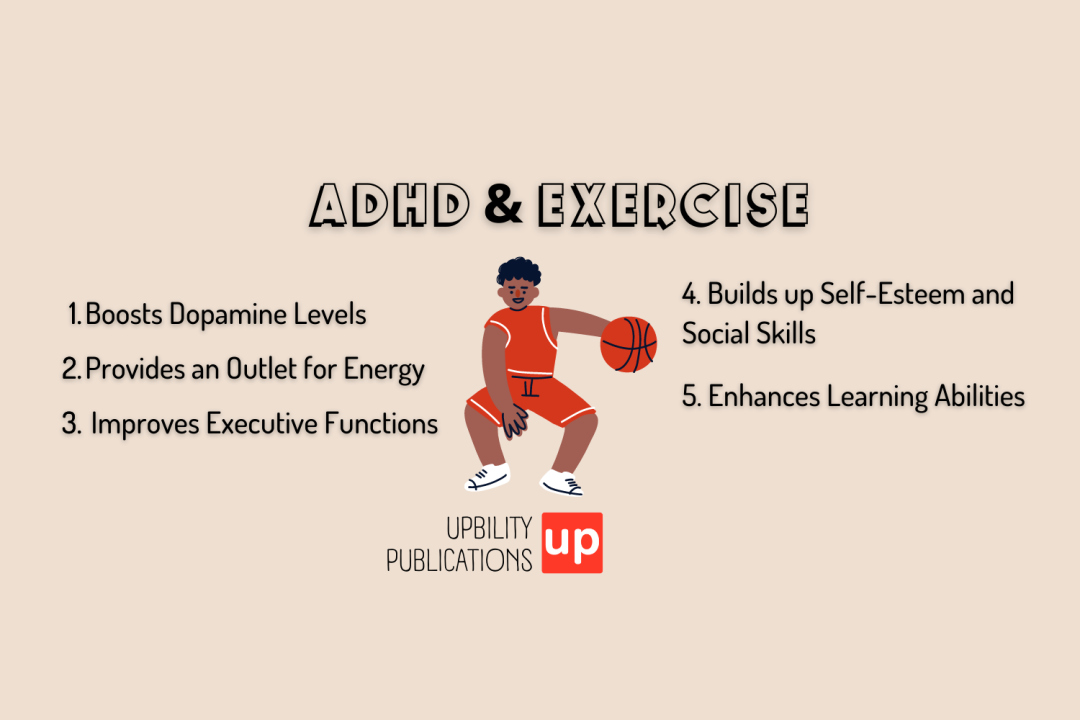
Exercise and ADHD: How Physical Activity Can Help
January 23, 2024 - Reading time: 3 minutes
The role of physical exercise in managing Attention Deficit Hyperactivity Disorder (ADHD) has gained increasing attention in recent years. A substantial body of research suggests that exercise can be a potent tool in reducing core symptoms of ADHD and enhancing executive functions. The impact of exercise on attention deficit hyperactivity disorder (ADHD) has been studied in both adults and children. A systematic review and meta-analysis of exercise interventions in children and adolescents with ADHD showed that exercise improved overall executive functions, with a standardized mean difference (SMD) of 0.611.
Key Benefits of Exercise for ADHD:
-
Reduction in Core Symptoms: Studies have shown that physical activity can significantly reduce the primary symptoms of ADHD, such as inattention, hyperactivity, and impulsivity.
-
Improvement in Executive Functions: Executive functions, which include skills like working memory, flexible thinking, and self-control, are often impaired in individuals with ADHD. Exercise has been found to enhance these critical cognitive skills.
-
Neurophysiological Benefits: Exercise increases the release of neurotransmitters like dopamine, epinephrine, norepinephrine, and serotonin, which are crucial for arousal and attention regulation - areas often affected in ADHD.
-
Long-term Benefits: While the positive effects of acute aerobic exercise are well-documented, there is growing evidence to support the benefits of long-term exercise interventions in ADHD management.
-
Potential for Complementary Therapy: Exercise may serve as an adjunctive treatment, complementing traditional ADHD therapies such as medication and behavioral therapy.
In adults, a randomized controlled trial found that exercise improved temporal impulsivity in adult ADHD, but did not improve other symptoms and worsened some aspects of performance in controls. Additionally, a study reported that individuals with childhood-only ADHD had a significantly higher frequency of excessive exercising compared to individuals without ADHD. While the research provides insights into the potential benefits of exercise for individuals with ADHD, more studies are needed to fully understand the effects of different exercise approaches on ADHD symptoms.
Clinical Studies
A systematic review encompassing 30 studies has further illuminated the role of physical activity in managing ADHD. This review, examining both short-term and long-term effects, found substantial clinical benefits of exercise for individuals with ADHD. The findings highlighted improvements in cognitive, behavioral, and physical symptoms, particularly through mixed exercise programs. Notably, no adverse effects from physical exercise were reported, underscoring its safety and tolerability as an intervention. This review strongly supports the inclusion of moderate-to-intense aerobic exercise as a beneficial strategy for children and adolescents with ADHD, calling for more comprehensive research to optimize exercise prescriptions for this population.
The current evidence, including systematic reviews and experimental studies, underscores the value of incorporating exercise into the treatment and management of ADHD. It's important to note that while exercise shows promise, it is not a standalone solution and should be part of a comprehensive ADHD management plan.
About
You can read reviews online, check with the Better Business Bureau, or ask for references from people you trust. When you've narrowed down your options, contact the centre to ask about their process and fees. Once you've found a qualified assessment centre, they will be able to help you determine if your child has ADHD and develop a treatment plan.